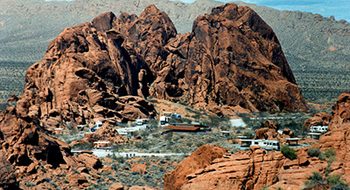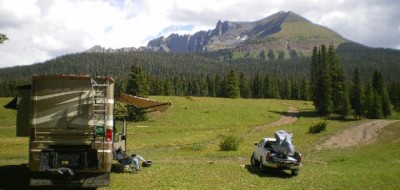Almost every new RVer or former weekender dreaming about going fulltime asks the question “How much does it cost to live fulltime in an RV?” The answer is, pick any number and you will find someone who says that is what it costs. And they’re right–for them.
However, that is probably not the best question to ask. Try rephrasing the question to “I will have a net income of (fill in the blank). Will this be enough to cover the RV lifestyle as I define it?” And that, of course, implies that you have to first define the RV lifestyle before you can cost it out.
What does costing it out entail? This question is very individual, which only you–and your traveling companion or spouse, if any–can answer. So get out a piece of paper or open a new document on your computer and answer these questions first:
- Is your RV paid for or will you have to factor payments into your budget?
- What does insurance cost per month?
- Is your RV old or new? An old RV will require more dollars budgeted for maintenance and repairs?
- Do you have a residence that will require maintenance or will provide additional income by renting?
- Are all your financial obligations paid off or will payments–other than monthly usage of credit cards–have to be factored in?
- Add in health insurance and prescription drug plan premiums, and average monthly co-pays.
- Add in cell phone costs, a gift budget, hobby costs, and anything else that will be recurring expenses.
- That was the easy part, numbers that are simple to come up with and are fairly accurate. Now the harder part.
Food costs. This includes cooking in and eating out. What are you willing to establish as your eating habits in your new RV Lifestyle? Will you be content to eat out one a week, or are you accustomed to eating out frequently? The difference is huge in what your food costs. Restaurants = high, cooking in with fresh farmers market fare and local food = low.
Camping. Are you comfortable with and enjoy boondocking on public lands or do you prefer campgrounds? Again a huge difference. RV resorts with golf, activities, rec room, full hookups, internet = expensive. Boondocking in the national forests and on BLM land = cheap to nothing. If somewhere in the middle, decide on how many nights a month you will stay in campgrounds and at what price level are you comfortable with and how many nights boondocking. Keep to whatever plan you work out.
Fuel: Make a plan on how much you will spend on fuel each month. Stopping for only one night and then moving on and a “I want to see it all now” agenda = expensive. Staying in one place for a few days or a week and exploring the local area = cheap.
Urges, whims, habits. Are you willing to part with some of these that you exercised when your income was higher and your pocket was full of cash (or credit cards)–or are you unwilling to change?
Define a dollar amount for emergencies–whatever figure you are comfortable with.
This is only a start. Write out every part of your preferred RV lifestyle as you define it or how you want to live it, then put dollar amounts to it, then figure out what that lifestyle will cost. That will be your personal plan and will not apply to anyone else. From there you can alter it to: (1) Reduce some part of it to fit your income, (2) Continue working until you have what it takes to pay for your defined RV lifestyle, or (3) Figure out how you can add to your income by part time or seasonal work, running an income producing website or online business, campground hosting to reduce your campground costs, or caretaking.
Whatever you decide, if you can stick to it–that is what it costs.
For more RVing articles and tips take a look at my Healthy RV Lifestyle website, where you will also find my ebooks: BOONDOCKING: Finding the Perfect Campsite on America’s Public Lands (PDF or Kindle), 111 Ways to Get the Biggest Bang for your RV Lifestyle Buck (PDF or Kindle), and Snowbird Guide to Boondocking in the Southwestern Deserts (PDF or Kindle), and my newest, The RV Lifestyle: Reflections of Life on the Road (Kindle reader version). NOTE: Use the Kindle version to read on iPad and iPhone or any device that has the free Kindle reader app.

